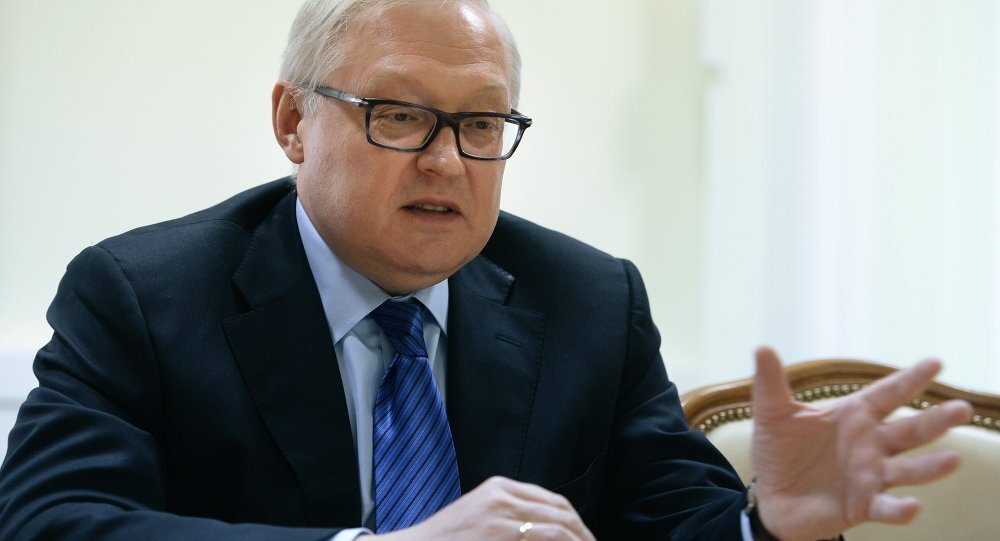Russian diplomat urges Europe to save nuclear deal

Russian Deputy Foreign Minister Sergey Ryabkov on Tuesday urged Europe to save the 2015 nuclear deal, formally known as the Joint Comprehensive Plan of Action (JCPOA).
“The Russian side confirmed that it is necessary to bolster joint efforts of all participants in the JCPOA, including Iran and the EU trio countries in favor of saving the agreements and ensuring their full implementation on the basis of abidance by their commitments by all the involved parties and with due regard for the principle of reciprocity on which the Plan of Action was based initially,” Ryabkov said in a meeting with British Ambassador to Russia Laurie Bristow, French Ambassador Sylvie Bermann and Charge d’Affaires ad Interim of the German Embassy in Russia Beate Crzeski.
According to TASS, Ryabkov said, “It was noted that the main challenges preventing an efficient implementation of the JCPOA are systemic violations and subversive actions from the U.S.”
Russian Permanent Representative to the European Union Vladimir Chizhov also said on Tuesday that Russia will ignore the U.S. sanctions against Iran and will continue trade with the country without creating any special mechanisms.
“Our colleagues here [in Brussels] sometimes ask why Russia and China do not create their own INSTEX [Instrument in Support of Trade Exchanges]. To that we answer with the question: why do we need it? We have already traded and will trade without paying any attention to U.S. sanctions,” Sputnik quoted him as saying.
The EU announced on June 28 that its special financial mechanism for trade with Iran, known as INSTEX, has gone into effect.
INSTEX – the Instrument in Support of Trade Exchanges - is a European special purpose vehicle aimed at facilitating legitimate trade between Europe and Iran.
Tehran says the mechanism is far short of Iran’s expectation. Iran insists the mechanism should include Iran’s oil purchases.
Majid Takht Ravanchi, Iran’s permanent representative to the United Nations, has likened INSTEX to a “beautiful car without gasoline”.
“The current situation of INSTEX does not suffice. This mechanism without money is like a beautiful car without gasoline,” he told reporters on June 29.
On May 8, Iran announced a partial withdrawal from some aspects of the nuclear pact, saying that the country would no longer adhere to some of the limits on its nuclear activities. It also threatened to step up uranium enrichment if an agreement is not made within 60 days to protect it from the sanctions’ effects.
In follow up to that deadline, on July 7 Iran announced that it has started enriching uranium to a higher purity than the 3.67% as the Europeans missed the 60-day deadline to devise a concrete mechanism to protect the country from the U.S. sanctions.
However, Iran has said if the remaining parties take concrete steps to shield the country from sanctions it will reverse its decisions.
In an article published on Monday, Foreign Policy said Iran’s announcement of starting enriching uranium to a higher purity has exposed the embarrassing limits of the European Union’s foreign policy when it seeks to take sides against the United States.
“For European countries and the EU itself, the slow unraveling of the landmark 2015 accord is a particularly brutal reminder of the bloc’s limited ability to chart a truly independent foreign policy,” the article said.
NA/PA
Leave a Comment